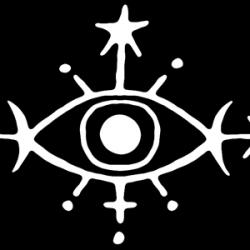By Patheos Team

Shabbat (Every Friday night to Saturday night)
- Shabbat is the seventh day of the Jewish week and a day of rest in Judaism. Shabbat is observed from sundown Friday until the appearance of three stars in the sky on Saturday night. The exact time, therefore, differs from week to week and from place to place, depending on the time of sunset at each location.
Rosh Hashanah (1 - 2 Tishrei)
- Rosh Hashanah is a Jewish holiday commonly referred to as the "Jewish New Year." It is the first of the High Holidays or Yamim Noraim ("Days of Awe"), or Asseret Yemei Teshuva (The Ten Days of Repentance), which are specifically set aside to focus on repentance and conclude with the holiday of Yom Kippur. Rosh Hashanah is the start of the civil year in the Hebrew calendar (one of four "new year" observances that define various legal "years" for different purposes). It is the new year for people, animals, and legal contracts.
Yom Kippur (10 Tishrei)
- Yom Kippur, also known in English as the Day of Atonement, is the most solemn and important of the Jewish holidays. Its central themes are atonement and repentance. Jews traditionally observe this holy day with a 25-hour period of fasting and intensive prayer, often spending most of the day in synagogue services.
Sukkot (15 - 20 Tishrei)
- Sukkot, is a biblical pilgrimage festival that occurs in autumn on the 15th day of the month of Tishrei. The holiday lasts seven days. Sukkot is one of the three major holidays known collectively as the Shalosh Regalim (three pilgrim festivals), when the Jews traveled to the Temple in Jerusalem.
Simchat Torah (23 Tishrei)
- Simchat Torah is a celebration marking the conclusion of the annual cycle of public Torah readings, and the beginning of a new cycle. Simchat Torah is a component of the biblical Jewish holiday of Shemini Atzeret ("Eighth Day of Assembly"), which follows immediately after the festival of Sukkot in the month of Tishrei.
Chanukkah (25 Kislev - 3 Tevet)
- Hanukkah, also known as the Festival of Lights, is an eight-day Jewish holiday commemorating the rededication of the Holy Temple in Jerusalem at the time of the Maccabean Revolt of the 2nd century B.C.E. Hanukkah is observed for eight nights, starting on the 25th day of Kislev according to the Hebrew calendar, and may occur from late November to late December on the Gregorian calendar.
Tu B'Shevat (15 Shevat)
- Tu Bishvat is a minor Jewish holiday in the Hebrew month of Shevat, usually sometime in late January or early February, that marks the "New Year of the Trees." Tu Bishvat is one of four "New Years" mentioned in the Mishnah. Customs include planting trees and eating dried fruits and nuts, especially figs, dates, raisins, carob, and almonds. In Israel, the flowering of the almond tree, which grows wild around the country, coincides with Tu Bishvat.
Purim (14 Adar)
- Purim is a festival that commemorates the deliverance of the Jewish people of the ancient Persian Empire from Haman's plot to annihilate them, as recorded in the biblical Book of Esther (Megillat Esther). According to the story, Haman cast lots to determine the day upon which to exterminate the Jews. Purim is celebrated annually according to the Hebrew calendar on the 14th day of the Hebrew month of Adar (Adar II in leap years), the day following the victory of the Jews over their enemies.
Pesach (or Passover) (15 - 22 Nisan)
- Passover is a Jewish festival commemorating the Jews' escape from enslavement in Egypt. Together with Shavuot ("Pentecost") and Sukkot ("Tabernacles"), Passover is one of the three pilgrim festivals (Shalosh Regalim) during which the entire Jewish populace historically made a pilgrimage to the Temple in Jerusalem. Samaritans still make this pilgrimage to Mount Gerizim, but only men participate in public worship.
Sifirat HaOmer (16 Nisan - 5 Sivan)
- Counting of the Omer (or Sefirat Ha'omer) is a verbal counting of each of the forty-nine days between the Jewish holidays of Passover and Shavuot. This mitzvah derives from the Torah commandment to count forty-nine days beginning from the day on which the Omer, a sacrifice containing an omer-measure of barley, was offered in the Temple in Jerusalem, up until the day before an offering of wheat was brought to the Temple on Shavuot. The Counting of the Omer begins on the second day of Passover and ends the day before the holiday of Shavuot, the "fiftieth day."
Page: 1 of 2




